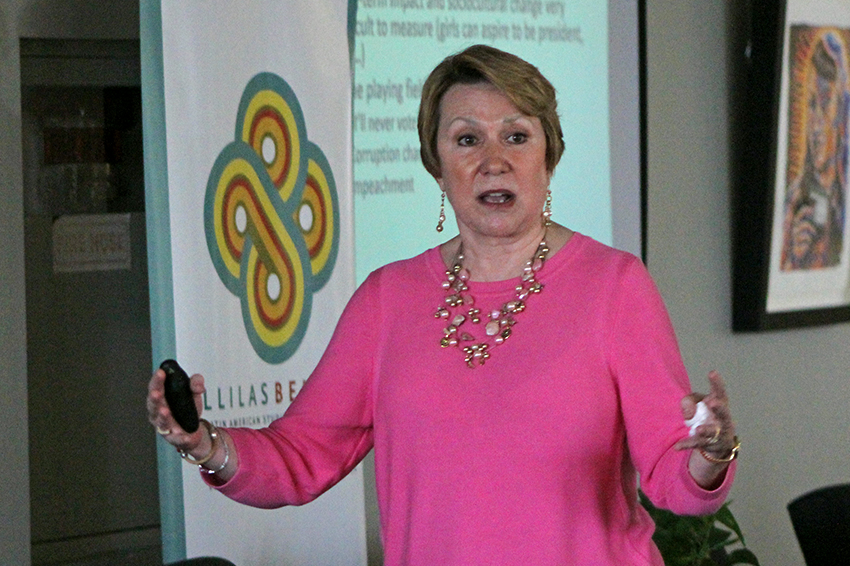With the probability of a woman sitting in the Oval Office at its highest in U.S. history, many people are wondering how the office of the president will change, if at all.
Victoria Rodriguez, a professor at the LBJ School of Public Affairs, wanted to analyze the effectiveness of women in power by evaluating women who held public office, their policy agendas, efficacy of governance and social impacts of women within Latin America’s presidential offices.
”Yes, boys and girls are getting used to seeing a woman running for president, but they are also seeing all the other crap that is going on,” Rodriguez said.
Rodriguez presented her research Tuesday at the LBJ School of Public Affairs in an open-discussion panel.
Her research took her and her graduate students to Brazil, Chile, Costa Rica and Argentina, where they conducted public opinion polls to break down the perception of female presidents of their respective countries. However, Rodriguez said numerical data is not all-inclusive.
”Sure numbers are important, they do matter,” Rodriguez said. ”But what is the story behind the numbers?”
One of the principal things Rodriguez wanted to show through her research of foreign female leaders was the prevalent sexism against women, an issue the U.S. may be forced to confront as well.
“The level of sexism [in Costa Rica] was terrible, the language they would use when talking about [the president] wasn’t good,” Rodriguez said.
Rodriguez said one of Hillary Clinton’s biggest challenges, if she becomes president, will be overcoming the ingrained sexism that exists in male-led political offices.
”There’s no attempt to at least disguise [sexism], it’s totally all out there,” Rodriguez said.
Ginny Burnett, director of LLILAS Benson Latin American Studies and Collections, said women also face discrimination in most basic forms of language, which affects how they are viewed
throughout society.
“[Language] has barely even been disguised. I don’t know what the male equivalent of a bitch is — we don’t even have a male version of that,” Burnett said.
Burnett said she doesn’t believe women will be able to break away from depending on males to gain their own political offices.
Susan Sage Heinzelman, director of the Center for Women’s and Gender studies, said because of the most recent allegations of sexual misconduct against Donald Trump, women are beginning to speak out to bring awareness to the sexism overlying the candidates on both sides of the election.
“I think there’s a way of dealing with this, maybe we have to treat those kinds of men like dogs and make them sit and behave,” Heinzelman said.
Rodriguez said everyone should evaluate both sides critically in order to have an informed opinion before the election commences.





















